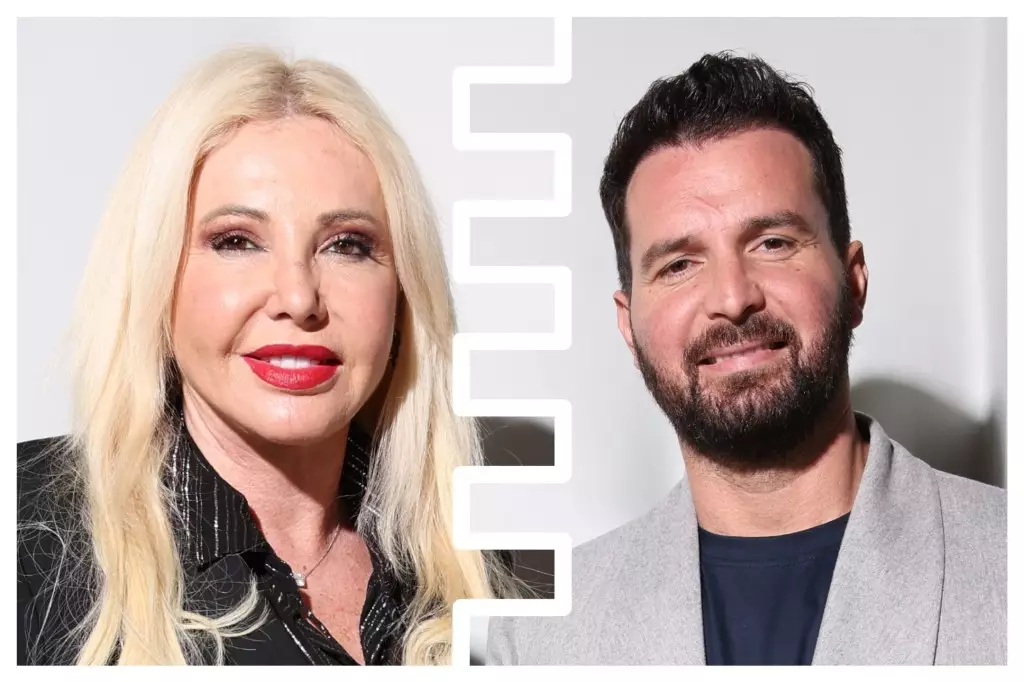The entertainment industry is rife with partnerships that often reflect the creativity and vision of their founders. However, when such alliances dissolve, they can devolve into bitter disputes embroiled in allegations and legal confrontations. The recent separation between Monika Bacardi and Andrea Iervolino, two significant figures in the film industry, serves as a poignant illustration of this phenomenon. The former co-founders of Iervolino and Lady Bacardi Entertainment (ILBE) have entered a tumultuous phase post their recent shareholders meeting, raising questions about the fragility of professional relationships in a competitive market.
An important shareholders meeting for ILBE was convened to address various contentious issues following Iervolino’s unexpected departure from his dual role as co-founder and CEO. This meeting marked the first formal assembly since Iervolino announced his intentions to launch The Andrea Iervolino Company (TAIC). Decisions made at this gathering included a resolution to initiate legal proceedings against Iervolino and engage the prestigious Italian law firm Pedersoli Gattai for preliminary investigations. Not only did the shareholders decide to pursue legal action, but they also resolved to rename the company to Lady Bacardi Media S.p.A. This renaming reflects an organizational shift and possibly an attempt to distance the company from its controversial history with Iervolino.
At the crux of the dispute are serious allegations made by Bacardi against Iervolino, accusing him of attempting to merge ILBE with Tatatu, a social media venture where he possesses a vast majority stake. According to Bacardi, when this merger did not materialize, Iervolino began to pivot Tatatu towards becoming a production entity, representing a conflict of interest and potential unfair competition against their established partnership. Bacardi also claims that Iervolino may not possess rights to certain intellectual properties associated with projects that were conceived during their collaboration.
Iervolino, on his part, vehemently denies these accusations, asserting that his current portfolio under TAIC is entirely independent of any intellectual property associated with ILBE. His approach to the unfolding events includes a legal counteroffensive, as he has engaged legal counsel to lodge a defamation suit aimed at protecting his reputation. Iervolino’s position emphasizes that the criticisms from Bacardi are unfounded and driven by personal vendettas rather than factual inaccuracies.
The discord has not only entailed legal disputes but has also ushered in significant operational changes within ILBE. Following the shareholders meeting, the existing Board of Statutory Auditors was dissolved, and a new Board of Directors was appointed. This restructuring, coupled with the decision to delist ILBE’s shares from the Euronext Growth Paris market, indicates a desire to realign the company’s direction in light of recent controversies. The newly formed board, featuring business professionals, is likely tasked with steering the company through this challenging transformation, highlighting the urgent need for clear leadership amidst chaos.
The split between Bacardi and Iervolino raises broader implications about the nature of partnerships in the entertainment sector. Partnerships in this field can be particularly volatile due to the personal and creative investments involved. Once trust is breached, as suggested by Bacardi’s accusations, the fallout can be catastrophic, jeopardizing not just the businesses involved but also the projects and careers tied to them. Ultimately, Iervolino’s public rebuttals and legal implications reflect a growing trend where personal relationships become collateral damage in the pursuit of reputation and business integrity.
As this saga continues to unfold, stakeholders in the entertainment industry will keenly watch how it impacts both parties and whether it serves as a cautionary tale for future collaborations. The trajectory of ILBE’s rebranding and endeavors under Bacardi’s leadership will also be critical in determining how quickly they can recover and assert their standing in a highly competitive market. For Iervolino, this conflict may either solidify or tarnish his reputation based on subsequent developments and the resolution of the legal disputes ahead.

